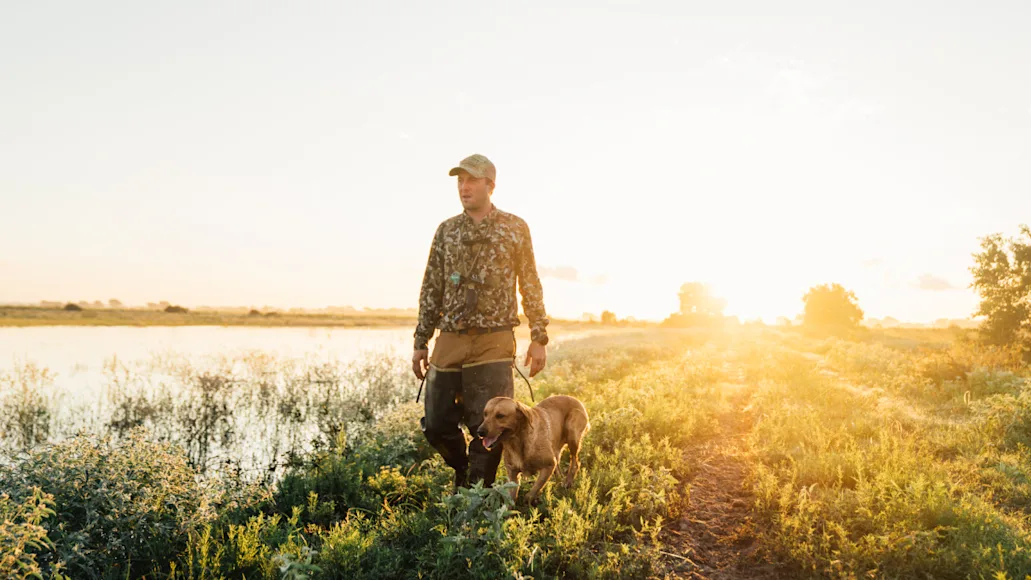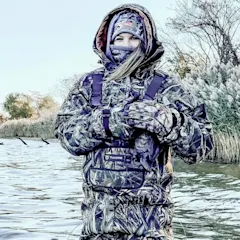_We may earn revenue from the products available on this page and participate in affiliate programs. Learn more ›
_
We take our gear seriously at F&S, whether it be for hunting, fishing, or camping. Our selections are based on many factors, like quality, price, and purpose—just to name a few. But sometimes there’s more to a fishing jacket or hunting knife than what you see.
Through my years of covering the best outdoor gear, I’ve discovered some really cool brands with some really cool stories doing some really cool things. In our new “Behind the Brand” interview series, we are telling those stories through the words of the founders themselves.
Sim Whatley is proof that you can take the guy out of duck camp, but you can’t take the duck camp out of the guy. After more than a decade overseas, he returned home to Louisiana to what he loves best: hunting and fishing. And from that passion, Duck Camp
was born.
We’ve been long-time fans of the brand here at Field & Stream, from the super sharp embroidered hats
to the fan-favorite hoodies
. So when we had the opportunity to sit down with Sim and talk about all things Duck Camp (and, well, actual duck camp), we were stoked. The Louisiana native shared his backstory—from fishing the sockeye salmon run in Alaska to running a business in Dubai—and how a lifetime of chasing ducks led to the creation of the outdoor apparel brand.
Field & Stream: Let’s start all the way from the very beginning. How did you first get into the outdoors?
Sim Whatley: I grew up in Louisiana, where hunting and fishing was always present in my family’s life. My grandfather was the youngest ever appointed commissioner for the wildlife and fisheries in Louisiana. He served 16 years. So my dad grew up offshore fishing, waterfowl hunting, deer hunting, all that sort of stuff. That was passed along to me—I spent a lot of time with both my grandfather and my dad out in the field.
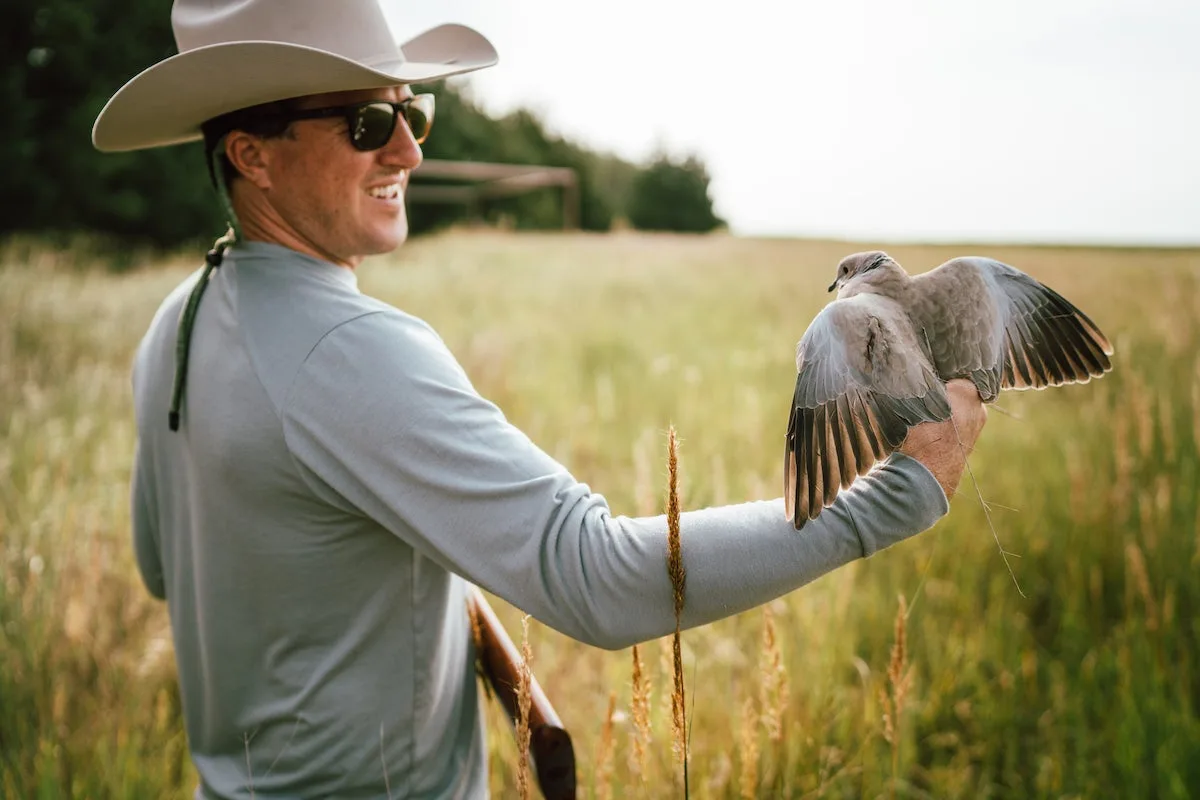
Hunting and fishing are socially and culturally really present in the southeast and in Louisiana where my family lived. I grew up in Baton Rouge but would hunt all over the state and a little bit in Mississippi through high school. Then in college (also in Baton Rouge at LSU), I got to do some more cool things, including a semester exchange at the University of Hawaii and a summer road trip where my roommate and I drove to Alaska to fish the sockeye salmon run.
Up until then I spent most of my childhood and and my young adult life in Louisiana. Then I had these experiences in these really epic places like Hawaii and Alaska and, and it really broadened my perspective of what was out there. So when I graduated college, I started looking at where I could go. I wanted to get out and explore. And eventually that led to an opportunity for me to work internationally.
What did you do?
I took a job doing financial sales. The company was based in Europe, but I did a lot of projects in the Middle East and all over the world, including Kuwait, Jordan, and the United Arab Emirates in Abu Dhabi. I was young at the time, just 23, and getting to explore places I previously couldn’t even find on a map. It was a really exciting time, and it ended up spurring on a sense of adventure.
After I left that job, a friend and I had the idea to start what was essentially a Craigslist—a classified platform—for that region of the world, which didn’t have it yet. We ran that for 10 years in Dubai.
How did you go from running an online company in Dubai to starting an outdoor apparel brand?
That 10 years I was in Dubai was time I wasn’t able to spend in a duck blind or on a flat boat or in the deer stand. It really made me miss it. When I eventually moved back to the U.S. in 2013, it was at the top of my list of things I felt like I needed to reconnect with.
I got a little fishing boat and a duck lease as soon as I could. I was spending as much time as I could back in this area I hadn’t been able to be in for quite a while and I was just soaking it up. During that break, I was really inspired by a lot of the stuff that had changed over the 10 years I was gone, especially within the apparel space.
Talk to us about that. What did you notice was missing in the world of hunting and fishing gear?
I’ve always loved clothing—I’m big into the technical features and performance of outdoor gear. There had clearly been a gap in that market for a very long time in terms of providing hunters and anglers with clothing that matched the sort of elements they were exposing themselves to. You could go into an REI and get seven different colors of a snow jacket. But if you wanted gear that would be able to work in a hunting environment, you were really limited to a certain quality that just wasn’t on the same level.
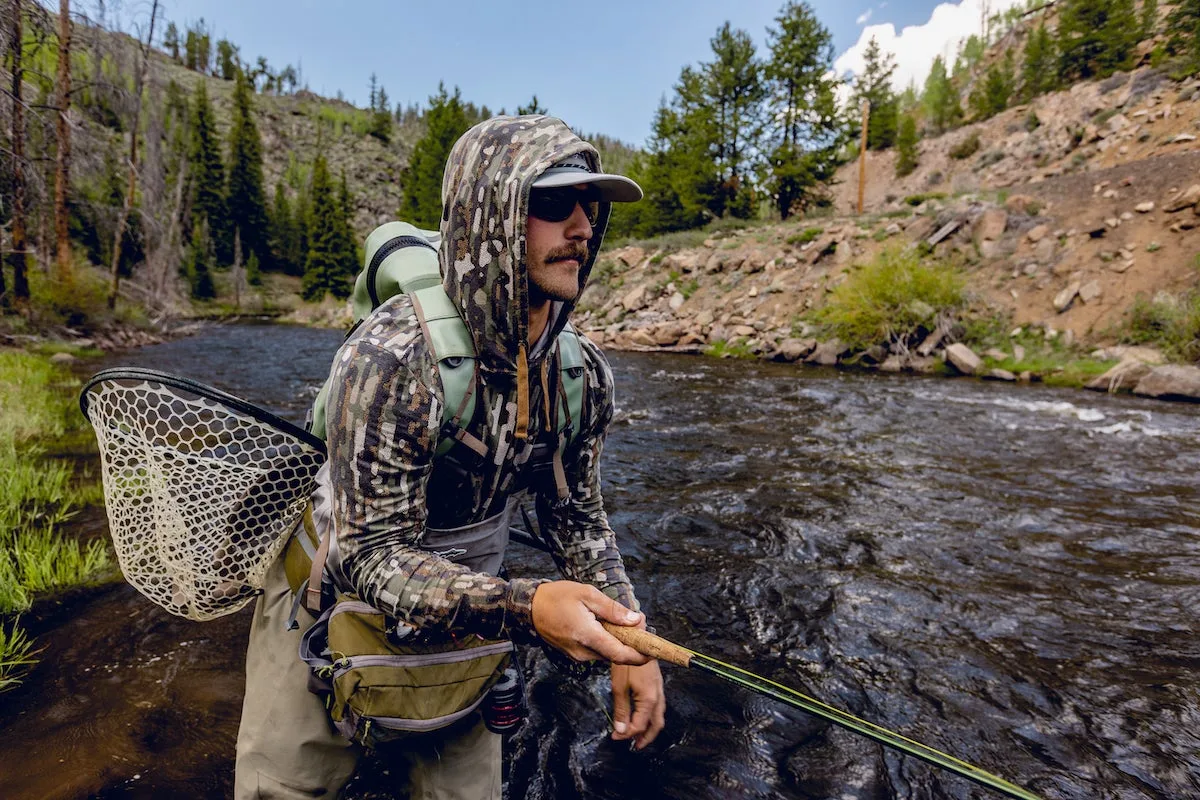
When I went to my local hunting store after getting back from overseas, I saw some of the gear that had come out while I had been gone. I was like, oh wow, this is amazing. I was also surprised at the price tag. It really opened my eyes that this was on par with the highest quality performance outdoor gear. It was just in a camouflage pattern.
Was there a specific “aha” moment that inspired you to dig into this idea of starting an apparel brand?
Not a moment, necessarily, but a shirt. The Columbia PFG shirt
, specifically. It’s been a staple in everyone’s closet for 20 or 30 years, in every color from pink to aquamarine. But every time I wore one of those shirts, it was an uncomfortable experience. It was typically really baggy in the waist, the sleeves were too short, and the material didn’t breathe. I ended up sweating more than I would if I was wearing cotton.
So I went on a bit of a mission to find a fabric that was both performance and lightweight. And what I ended up finding was this nylon Suplex fabric that had a hand feel of something much more organic along with the performance features of a polyester but more breathable.
What were you hoping to create with Duck Camp?
Growing up in Louisiana, hunting and fishing is something that’s much more enjoyed socially. It’s less about man versus nature and more of an opportunity to reconnect with friends and family and to get outside. Obviously you have the purpose of sustaining oneself and providing food for your family, but even more so to enjoy your time in the outdoors.
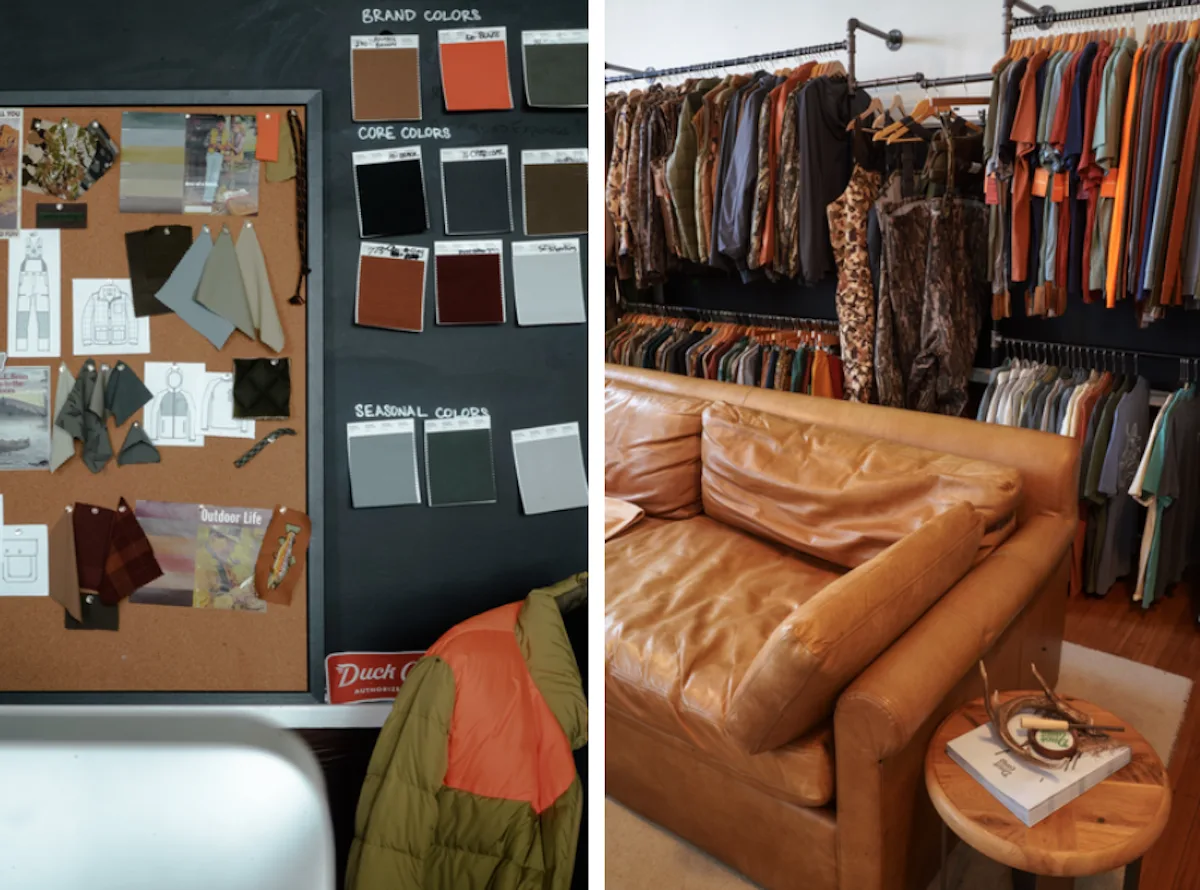
So when I was looking at the brands that had come out before Duck Camp, I didn’t see that element of it. I saw much more of the extreme performance athlete, solo expedition, hardened sort of sort of messaging and product to go along with it.
I saw this as an opportunity for there to be more outdoor brands within the hunt and fish space that could sort of identify their own market.
Okay, so you wanted to do something different. What did that look like? What really sets Duck Camp apart from the other outdoor brands?
I saw an opportunity for something lighter weight, maybe more focused on a warmer environment, inspired by the southeastern region where I grew up. And most importantly, I wanted to make something that spoke more to just getting out and having fun.
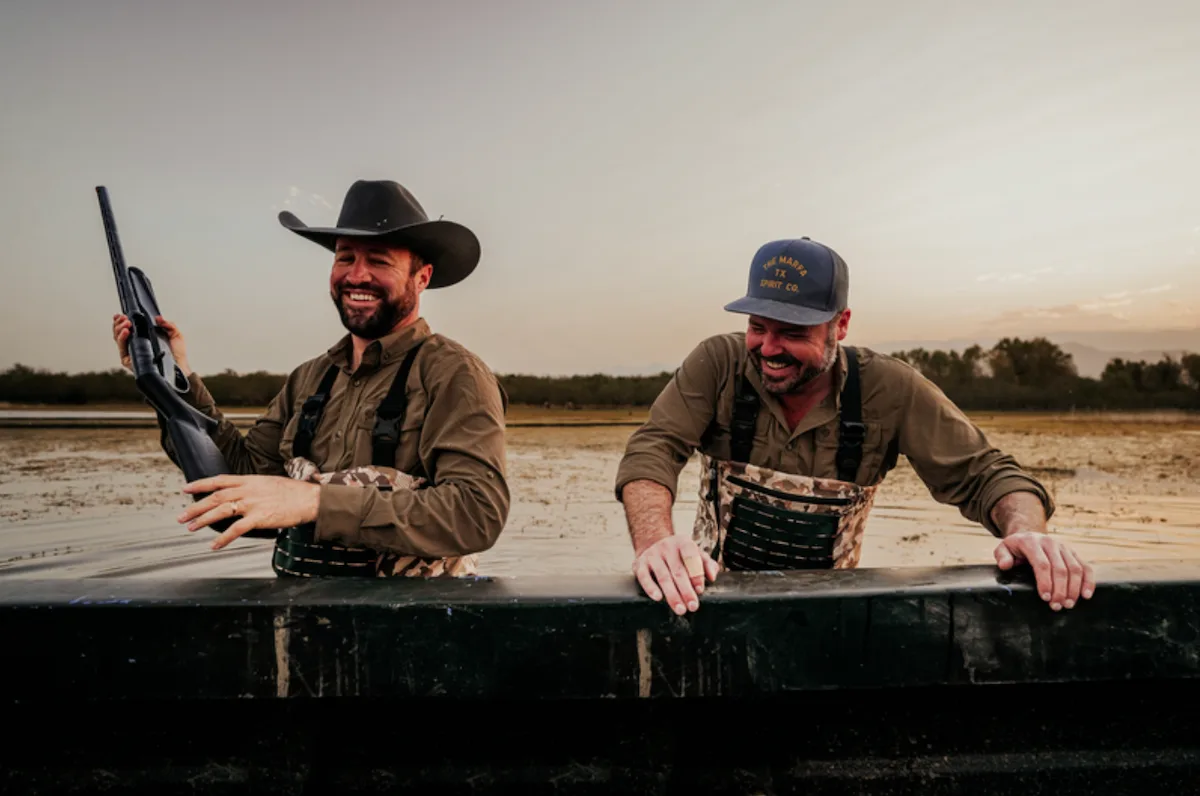
That included being comfortable and protected from the elements, obviously. And I wanted to make clothing with a modern fit (not overly baggy) and that was made out of high quality materials and didn’t feel cheap. But all in all, I was focused more on the social nature of hunting and fishing.
Throughout all of our products, we really focus on comfort and versatility. We like a product that performs in multiple situations and, as we like to say, can go from the blind to the bar.
What was the first thing you released?
What I identified as the perfect product for us to come to market with—and something I thought really needed improving upon—was a lightweight performance hunting shirt
and/or fishing shirt
. The hunting shirt remains one of my favorites to this day.
Where did the name Duck Camp come from?
When I was thinking about a name for the brand, I wanted something to really correlate to the feeling of anticipation and excitement you get a few days before you leave to go to camp. The actual hunt or fish experience is such a short amount of time in the overall timeline of the trip, and a lot of energy goes into that moment. But it’s not what it’s all about.
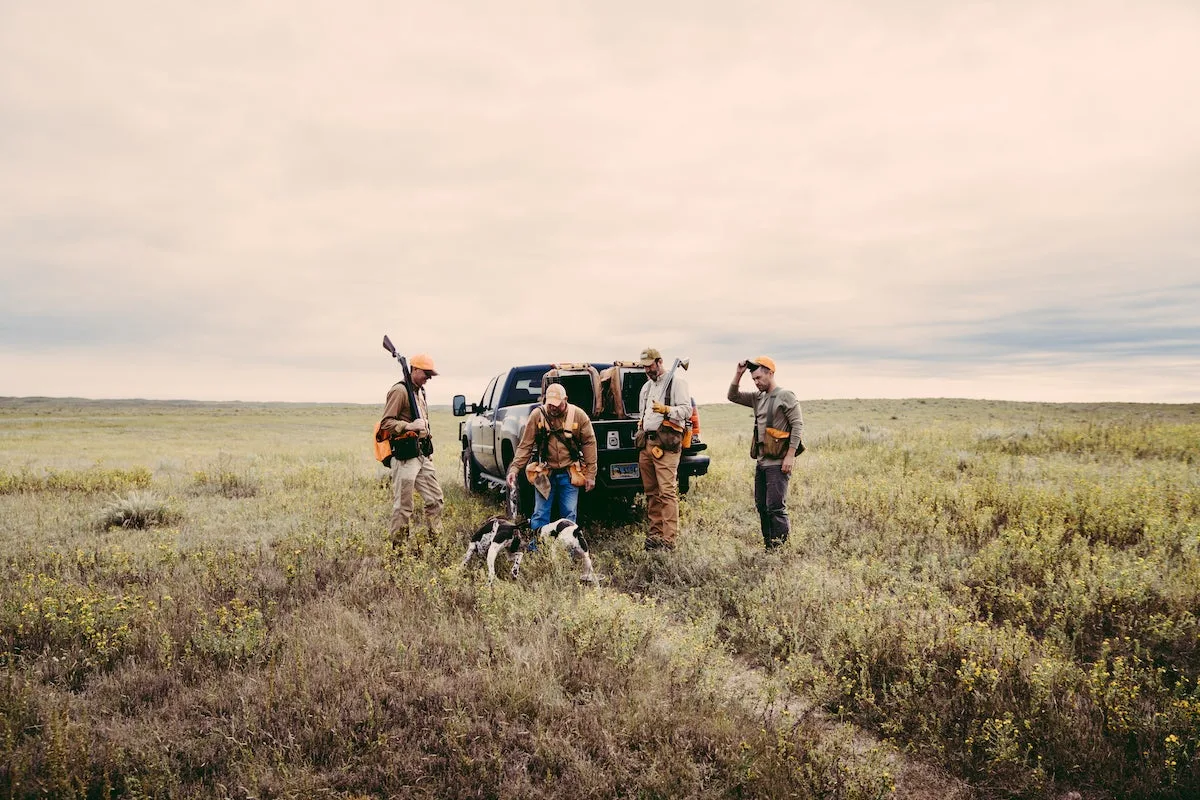
Leading up to it, there’s so much prep and planning. I start to pack my bag a couple of days early, thinking about what I need to get at the store and making sure I have everything for a weekend. I get excited. And that feeling kind of lasts all the way until you’re packing up, cleaning the camp, and leaving. I wanted a brand that could support every step of the process from beginning to end, and that could really bring out that emotion.
It’s not just ducks, either. We could have called it deer camp, fish camp, anything. It just represents that place in the wild, in the woods, in nature where you go to disconnect from the world. You get away from your phone, work, social media, or any other pressures and reconnect with people and nature.
We hope that when you hear Duck Camp, it makes you feel like you want to get out there and experience that.
What are your three favorite Duck Camp pieces right now?
**Duck Camp Airflow Insulated Jacket
**
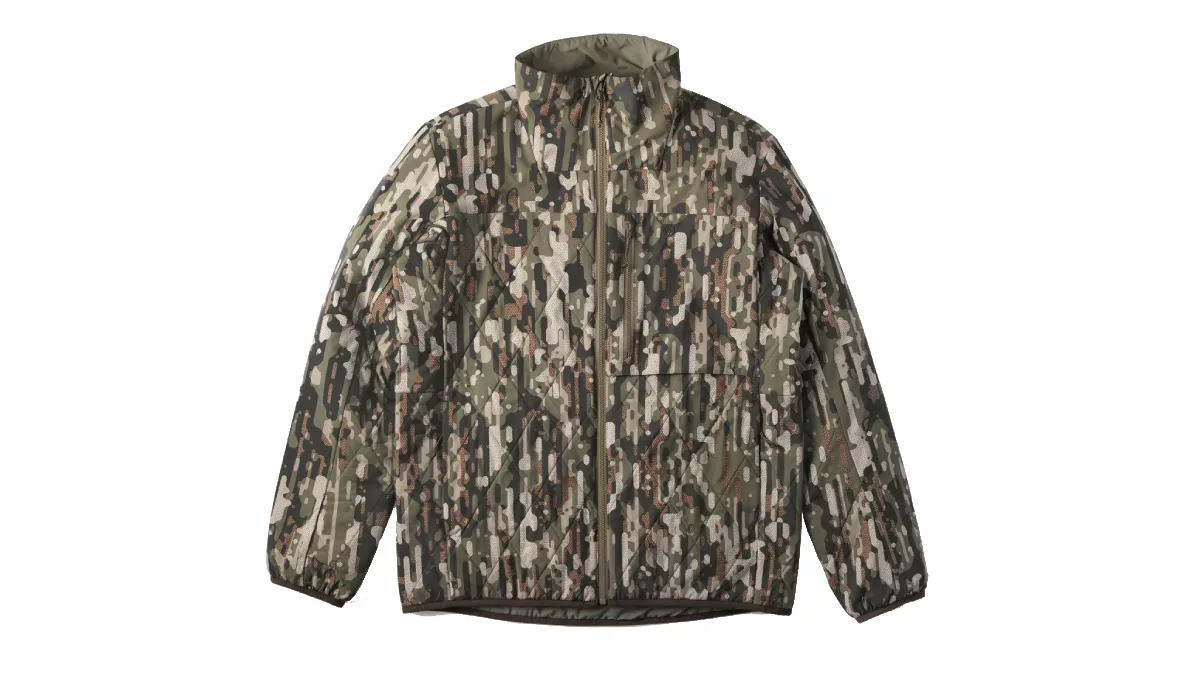
I love our insulated airflow line, especially coming out of winter into these spring days that start off cold. I’m actually wearing our insulated airflow jacket right now—I usually start the day with it. It’s warm but breathes really well for when it warms up a little bit in the afternoon. It’s a great layering piece that’s got an iconic style to it.
**
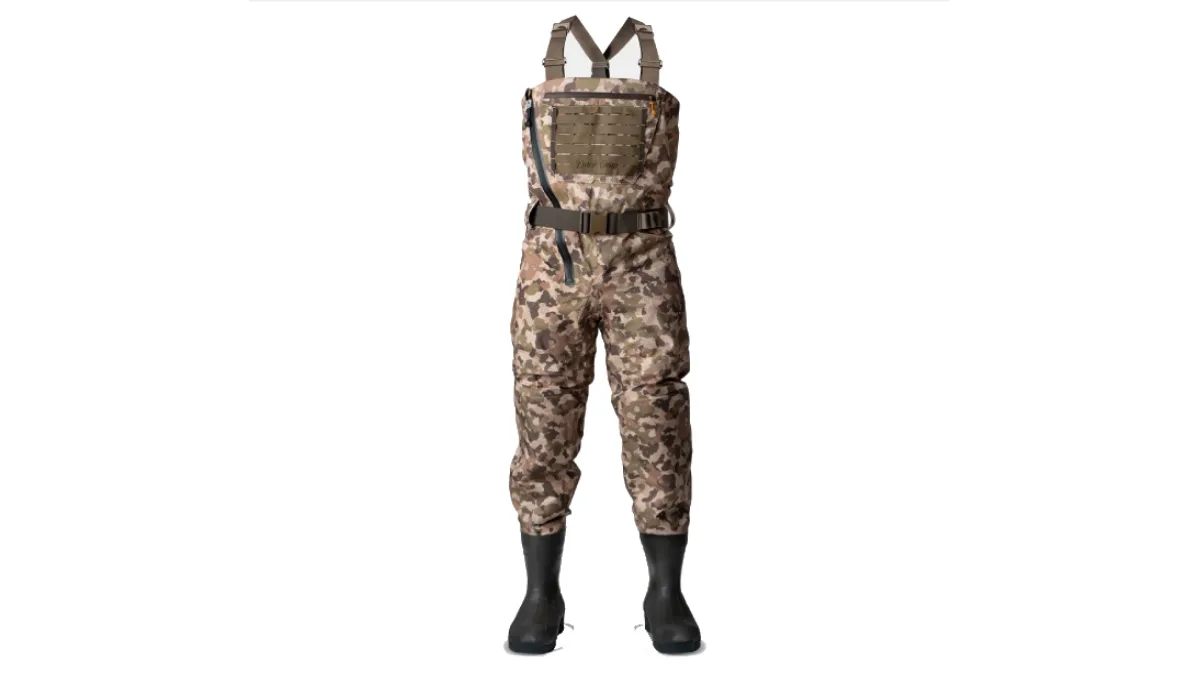
Our waders are a good example of a pinnacle product we’re really proud of. They compete with anyone on the market and actually come in at a price point that is super competitive. Guides and pros in the industry love them. The waders are also proof that even though we’re a brand I think could be sometimes looked at from a lifestyle perspective, we’re really intentional upon making performance hunting and fishing apparel.
**Duck Camp Lightweight Hunting Shirt
**
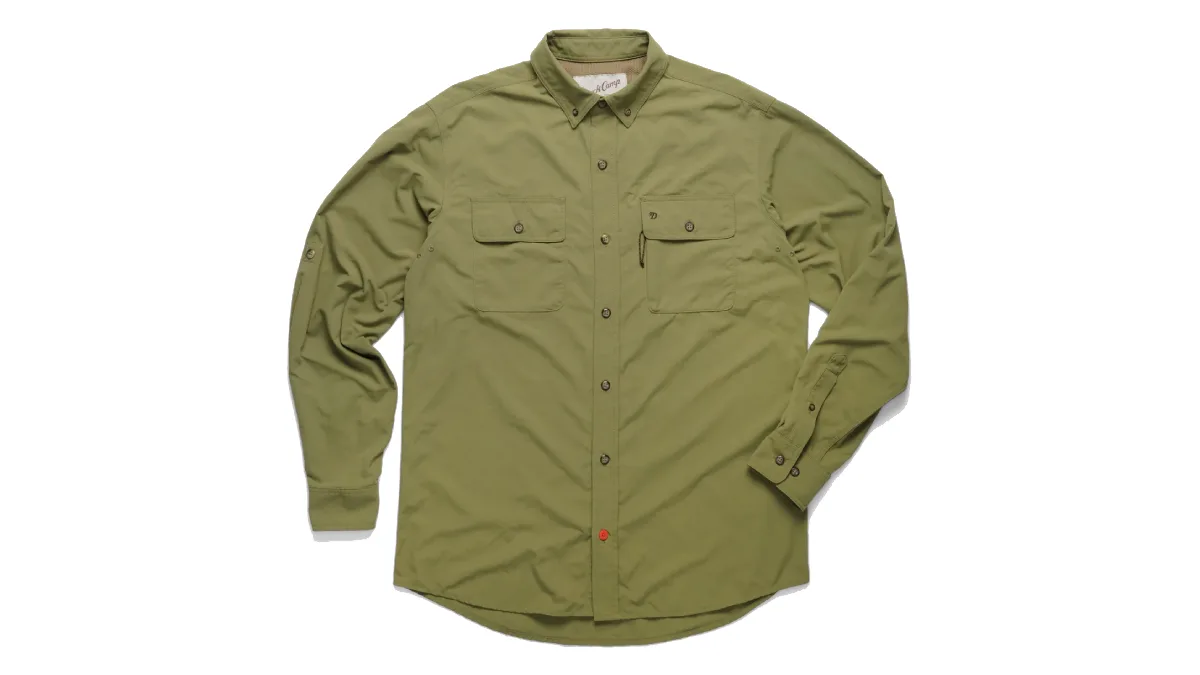
I would still say our original product—the lightweight hunting shirt—is still one of my favorites. It’s got a great hand feel to it. When you wear it, it’s really comfortable and it works well in the field. It comes in a ton of colors you can mix and match. Plus, I think it’s as acceptable for everyday wear as it is for in the woods.
Is Duck Camp solely for people who hunt and fish, or can it be for anyone who enjoys the outdoors?
It’s for anyone, even though our marketing and messaging is focused mostly around spending time in the outdoors with the pursuit of, of hunting and fishing.
While you don’t have to be a professional or a guide, I think it’s important to understand, appreciate, and respect those pursuits. Going out into nature and providing for yourself and your family is ultimately the best thing you can do both from a health perspective and an environmental perspective. Reconnecting with nature and being out in the world in the wild is something that’s really important to us as a brand and something we value. And so, you know, as long as anyone sort of views and sees those perspectives similarly, then I think that can’t fits in anyone’s closet.
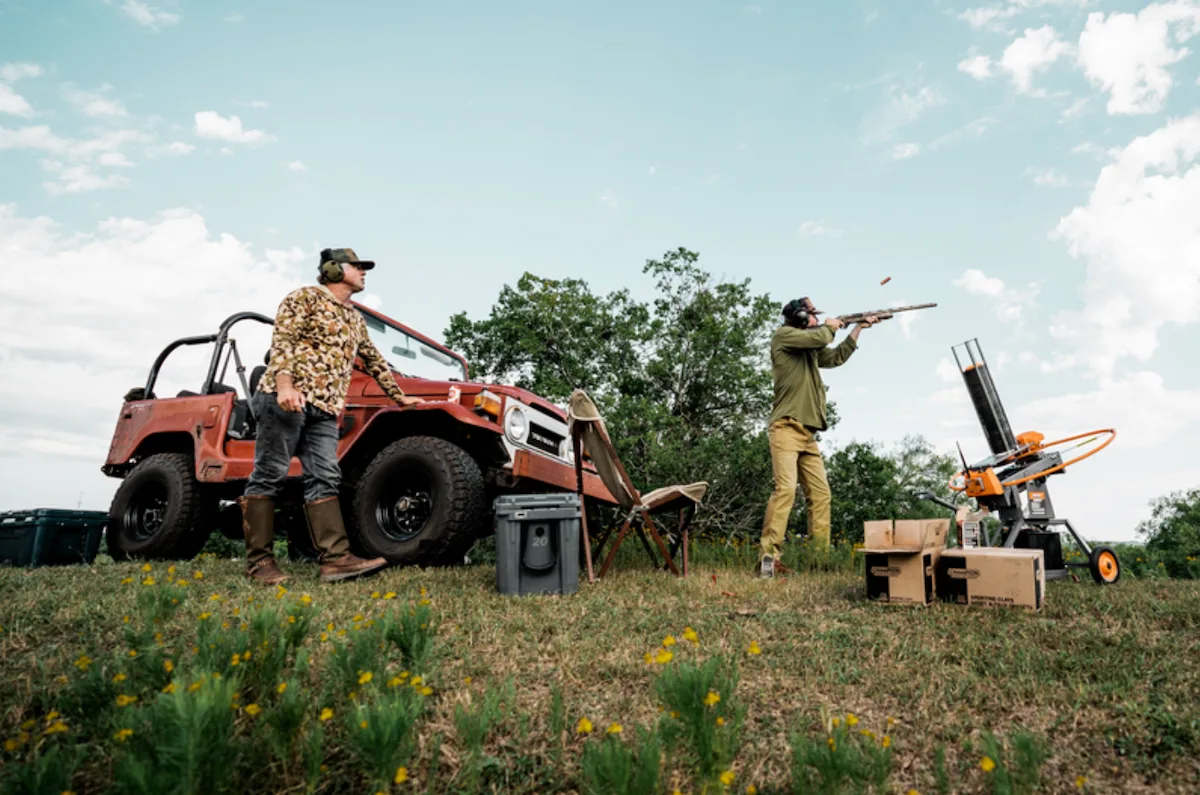
Talk to us about your slogan, “Outdoor Good.” What exactly does that mean?
We call it a charge. “Outdoor Good” could be getting better at hunting or fishing. It could be taking your kid out for their first fishing trip. It could mean supporting conservation efforts.
We also understand it’s grammatically incorrect. But we kind of like that, because it shows we don’t really take ourselves too seriously. One of the best things about this space to me is that it’s a lot of fun. It’s people sitting around a campfire, telling stories and jokes and making each other laugh. We wanted our slogan—if you want to call it that—to resemble that lighthearted feeling.
You mentioned conservation efforts. Does Duck Camp do a lot with conservation?
We do, yeah. In the past, we’ve partnered with Ducks Unlimited and their banquets and Delta Waterfowl. They’re great organizations and great causes.
As a company, it’s important to us to know that we’re making a difference. We’re constantly trying our best to make sure that we’re being effective and supporting organizations that we feel are doing really good work. We want this brand to last until our grandkids’ generation and we want all of the spaces in which we pursue these animals to be healthy for just as long.
What do you love most about being a part of Duck Camp?
The people. I’ve been very humbled and very impressed. Seeing the quality of people that are as excited about the brand as I am and want to help build it is really amazing. We have a very, very strong team of people that work here. It’s wild to think we created something that could attract such high quality talent.
Yeah, that’s huge. Aside from the people you’ve met and the business you’ve built, what’s been your most memorable moment along the way?
Honestly, it’s the smaller things. What still excites me is walking through an airport somewhere not very close to home or showing up to a crawfish boil in the middle of nowhere and seeing someone wearing Duck Camp. I’ll ask them about the jacket or hat they’re wearing and seeing them light up or hearing them talk about it is just so cool. Those sort of experiences mean so much more to me than the millionth sale or something.
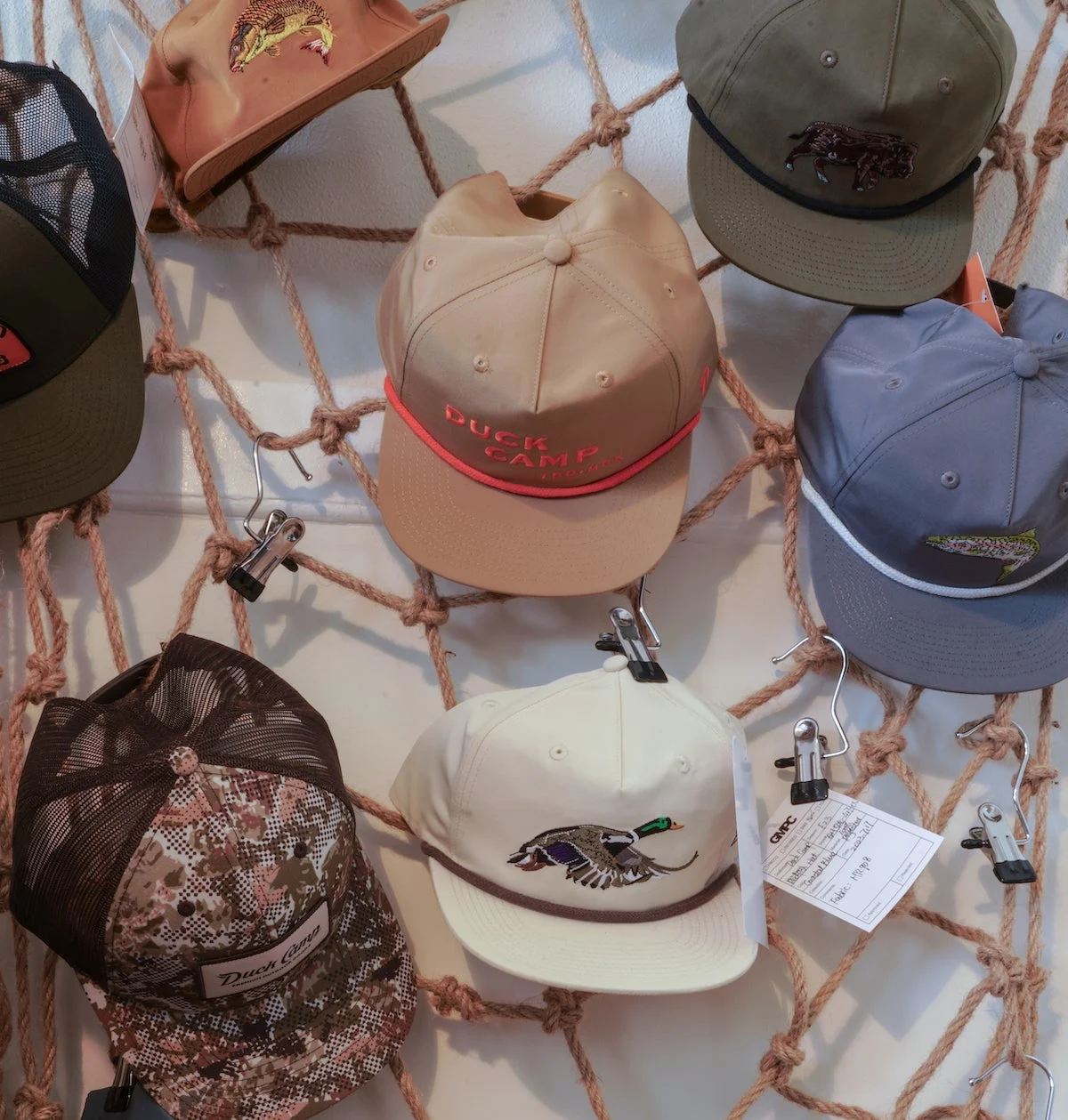
I’m also really proud of some softer metrics. Our products have an average 4.8-star rating from reviews and our return rate—which is when people buy something and return it because they didn’t care for it—is super low from an industry perspective. It means we’re building products that really resonate and that people really like. At the end of the day, that’s why we do what we do.
So what’s next for Duck Camp in 2024?
We’re really excited about the future. We want to grow, but in the right areas. We want to stay true to the core that is the Duck Camp brand. We are a hunting and fishing brand and you’ll continue to see that. We aren’t going to chase trends or all of a sudden pivot to whitewater rafting or climbing. We want to get our core products really dialed in.
We’re also growing the women’s line, which came out last spring. It was the first launch of women’s products designed by and developed by a female team. We’re super proud of that and will continue to build out that line.
On to a few final fun questions. Are you more of a hunter or an angler?
Oh, you can’t ask me that. I go through phases. I’ve always believed that access determines passion. While there have been plenty of times in my life where I would say duck hunting is my number one passion, if I don’t have access to it, I find something else to be passionate about it.
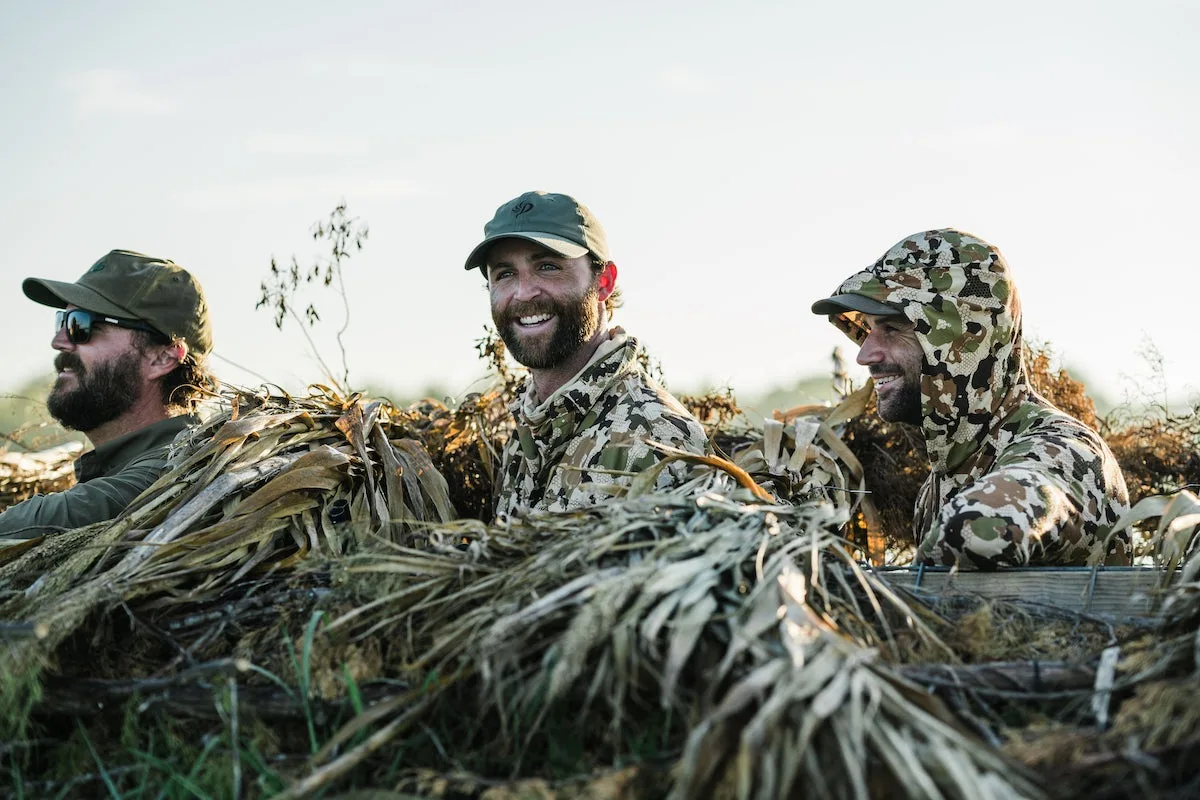
Recently I’ve been really excited about bowhunting for white tail. So I guess I’d say that if I had an open weekend to do anything I wanted, at the moment it would be the rut with a bow in a tree somewhere in the Mississippi Delta hardwood area.
What’s been your favorite hunt so far?
I’ve had a lot of really successful hunts, from goose hunts where you’ve got crazy numbers to mallard hunts in the Arkansas timber. Having a job in this industry, I get invited to some really great hunts.
But when I close my eyes and think about my most memorable hunts, it’s still the ones when I was a kid, out hunting with my dad and my grandfather or with my uncle. It’s having those experiences for the first time. You can’t beat that.
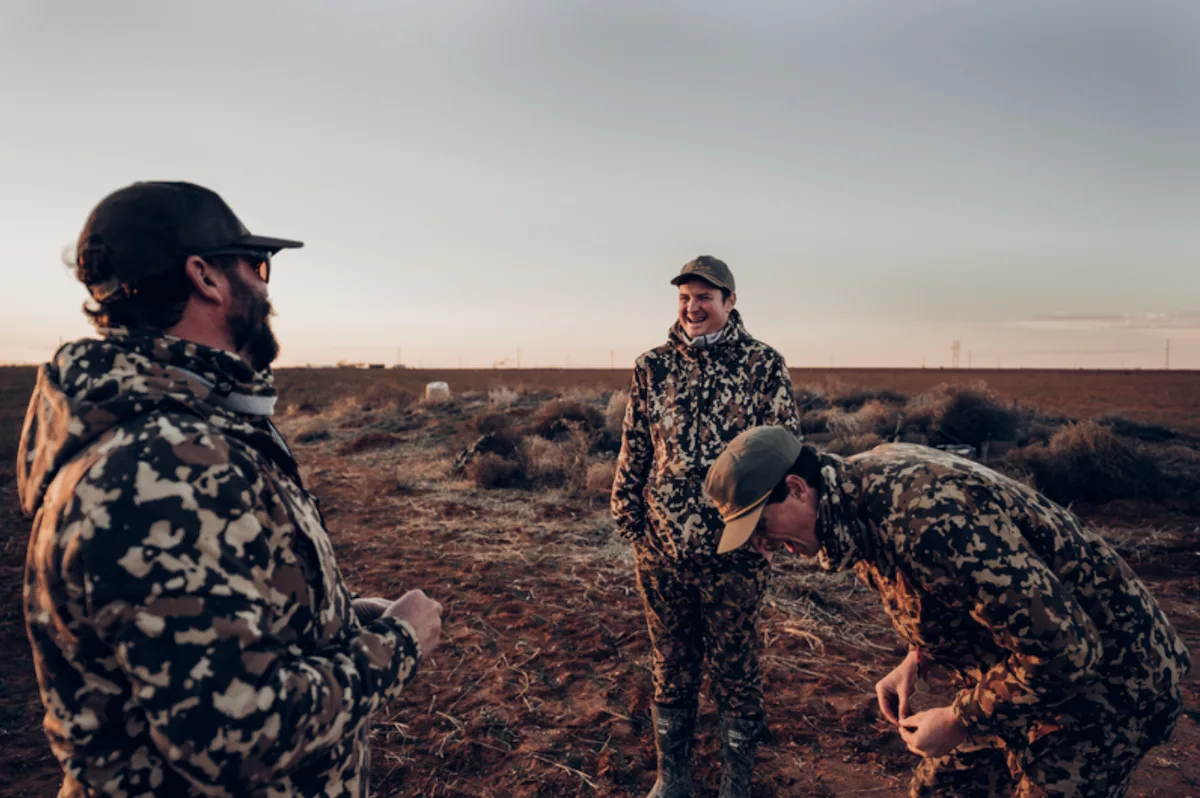
Why Trust Us
For more than 125 years, Field & Stream has been providing readers with honest and authentic coverage of outdoor gear. Our writers and editors eat, sleep, and breathe the outdoors, and that passion comes through in our product reviews. You can count on F&S to keep you up to date on the best new gear. And when we write about a product—whether it’s a bass lure or a backpack—we cover the good and the bad, so you know exactly what to expect before you decide to make a purchase.

